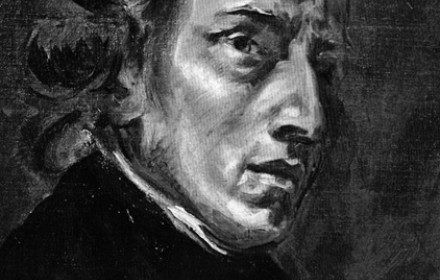Converse Celebrates 200th Anniversary of Chopin's Birth

Frédéric Chopin – the name conjures the very essence of Romantic piano music and piano playing. Born to a Polish mother and a French father in 1810 in a town near Warsaw, Chopin went on to rock the musical world with his startlingly original harmonies and harmonic progressions, his drop-dead gorgeous melodies, his use of “rubato,” his innovations in technique and pedaling, his incorporation of Polish folk idioms, and his style of playing the piano in general. Indeed, Chopin was one of the great musical geniuses of all time, a child prodigy who grew up to become known as “The Poet of the Piano.”
On March 1, the world will celebrate Chopin’s 200th birthday. Converse College is joining in the celebration with four recitals in March and April devoted exclusively to his works. The first, at 7:30 pm on Chopin’s birthday of March 1, will feature performances by both students and faculty. The subsequent three, on March 7 and 21 (both at 4:00 pm) and on April 17 (7:30 pm), will be performed by Babcock Professor of Piano Douglas Weeks and will showcase early, middle, and late works respectively. The combined recitals will include nearly all of Chopin’s major works for solo piano: the four Ballades, the four Scherzi, the twenty-four Preludes, the Second Sonata, and the Barcarolle, Polonaise-Fantasy, and Fantasie along with selected waltzes, mazurkas, etudes, impromptus and nocturnes. The recitals will also include brief commentary on Chopin’s life and works. All are free and open to the public; each will take place in Daniel Recital Hall on the Converse College campus.
Chopin biographer Arthur Hedley wrote that Chopin “had the rare gift of a very personal melody, expressive of heart-felt emotion, and his music is penetrated by a poetic feeling that has an almost universal appeal.” Indeed, an indication of Chopin’s influence is the degree to which his music has again and again found its way into popular culture. Many works are widely known, notably the “Raindrop” Prelude, the “Minute” Waltz, the “Revolutionary” Etude, the great Polonaise in A-flat Major, “The Heroic,” and the Funeral March from the 2nd Sonata — a piece commonly heard at state funerals worldwide. Moreover, several of Chopin’s works have been used as the basis for popular American songs, including “I’m Always Chasing Rainbows,” based on a melody from the Fantasie-Impromptu and recorded by many artists over the years, and Barry Manilow’s 1975 hit “Could It Be Magic?” based on the C Minor Prelude.